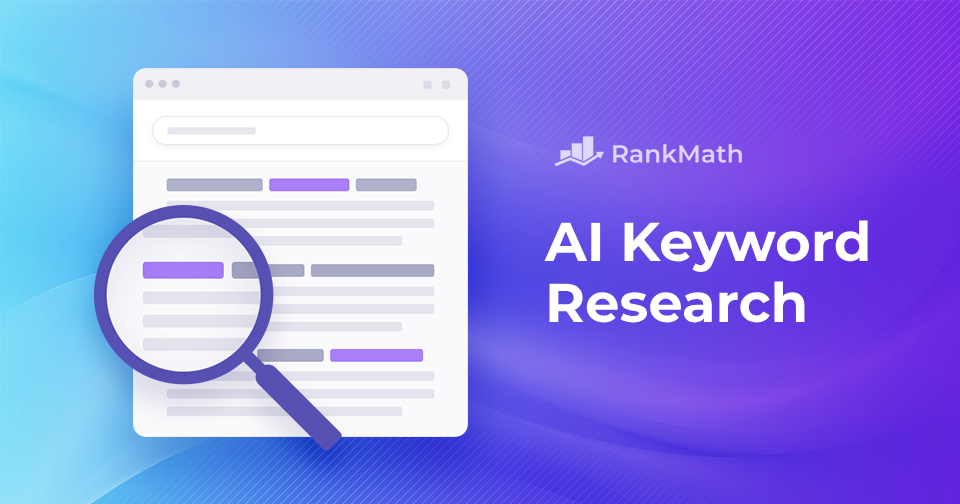Keyword research has always been the foundation of successful SEO. It helps you understand what your audience is searching for, find opportunities to drive traffic, and shape content that ranks well in search engines.
But with the rise of AI, keyword research is no longer limited to manual searches and endless spreadsheets, it’s faster, smarter, and more insightful than ever before.
In this post, I’ll discuss various ways to perform AI keyword research and supercharge your SEO efforts with the help of Rank Math. So, without any further ado, let’s get started.

Table Of Contents
1 What is AI Keyword Research?
AI keyword research is about using artificial intelligence to help you find the right keywords faster and with more accuracy.
Instead of going through endless lists and guessing which keywords might work, AI tools can look at huge amounts of search data, analyze patterns, and even suggest keywords based on what audiences are likely to search for next.
That means when you use AI for keyword research, you’re not just finding words with high search volume, you’re also understanding search intent, competition, and how those keywords fit into your content.
In simple terms, AI keyword research takes the heavy lifting out of the process. You don’t have to spend hours digging through spreadsheets. The AI does the data work, and we get to focus on creating content that actually answers what audiences are looking for.
2 Ways to Use AI for Keyword Research
Let us now discuss ways to use AI to perform keyword research.
2.1 Generate Keyword Ideas Using AI
RankBot, a part of Rank Math’s Content AI, simplifies keyword research by using AI to organize and suggest keyword ideas based on specific prompts.
Instead of spending hours guessing, you can choose a ready-made prompt from the Prompt Library, and RankBot will do the heavy lifting.
To access RankBot, navigate to Rank Math SEO → Content AI → Chat from your WordPress dashboard after enabling the Content AI module.
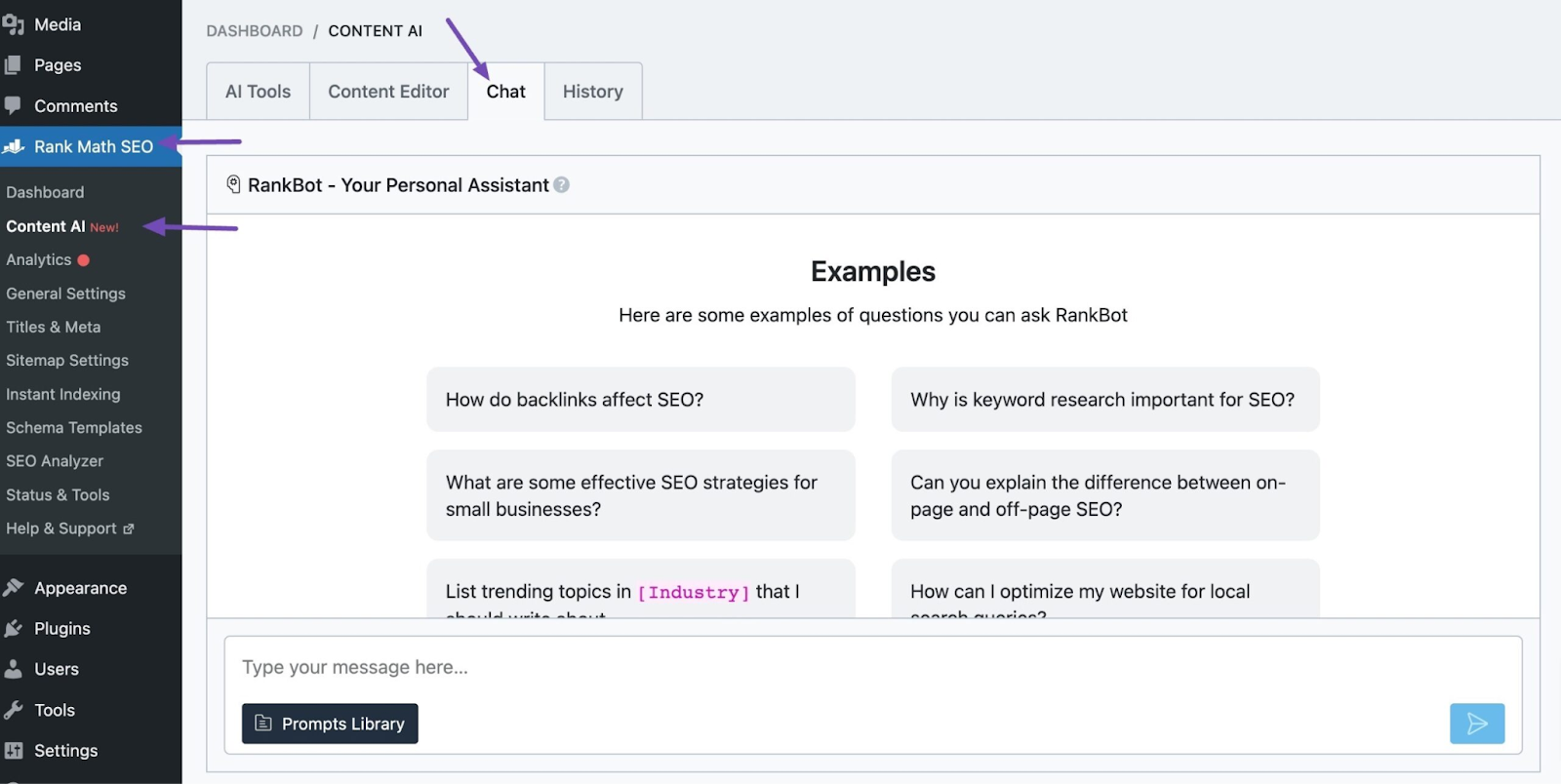
If you want to find long-tail keywords, select the Long-tail Keywords prompt.
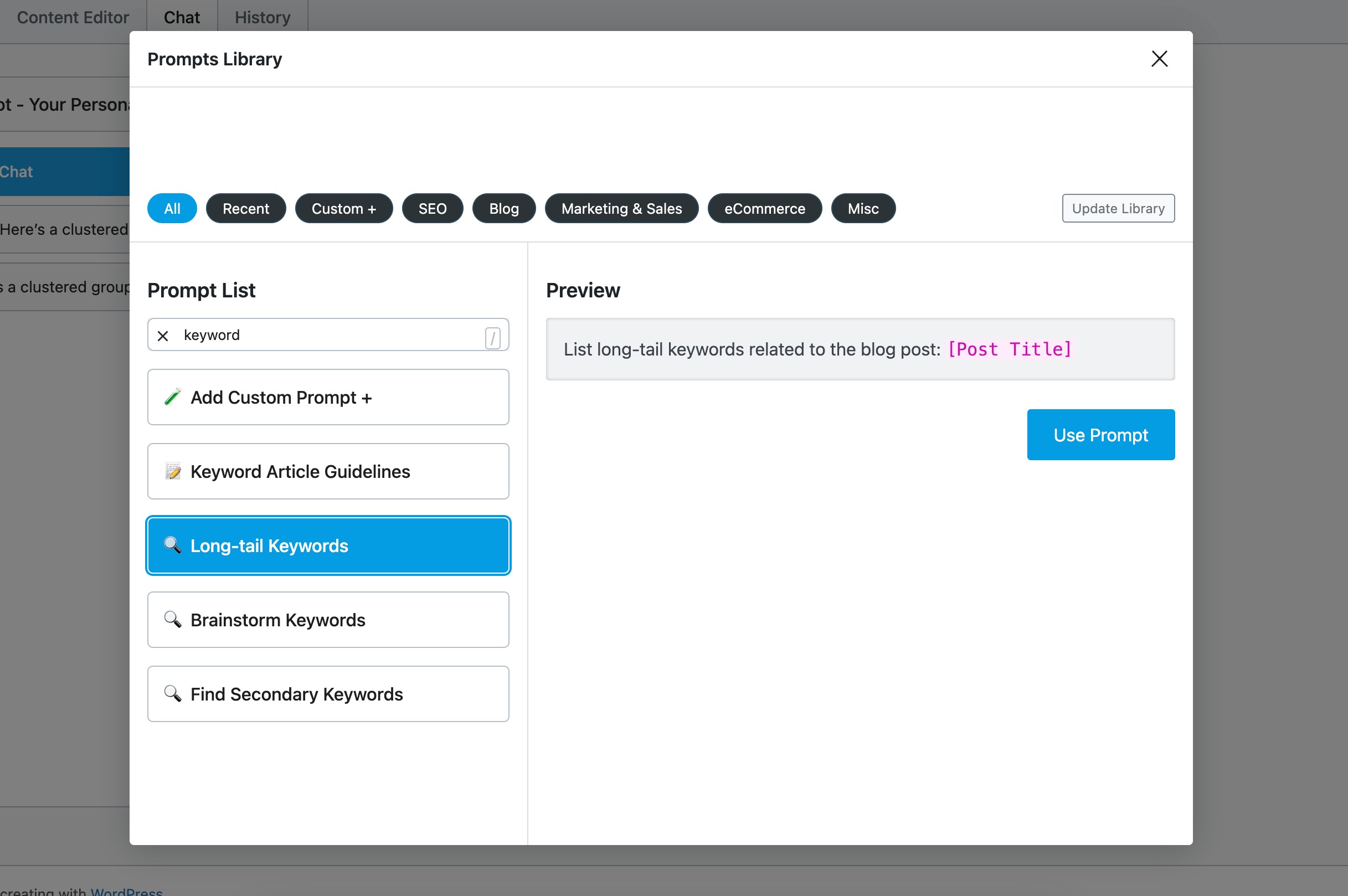
Click on Use Prompt to command it to RankBot.
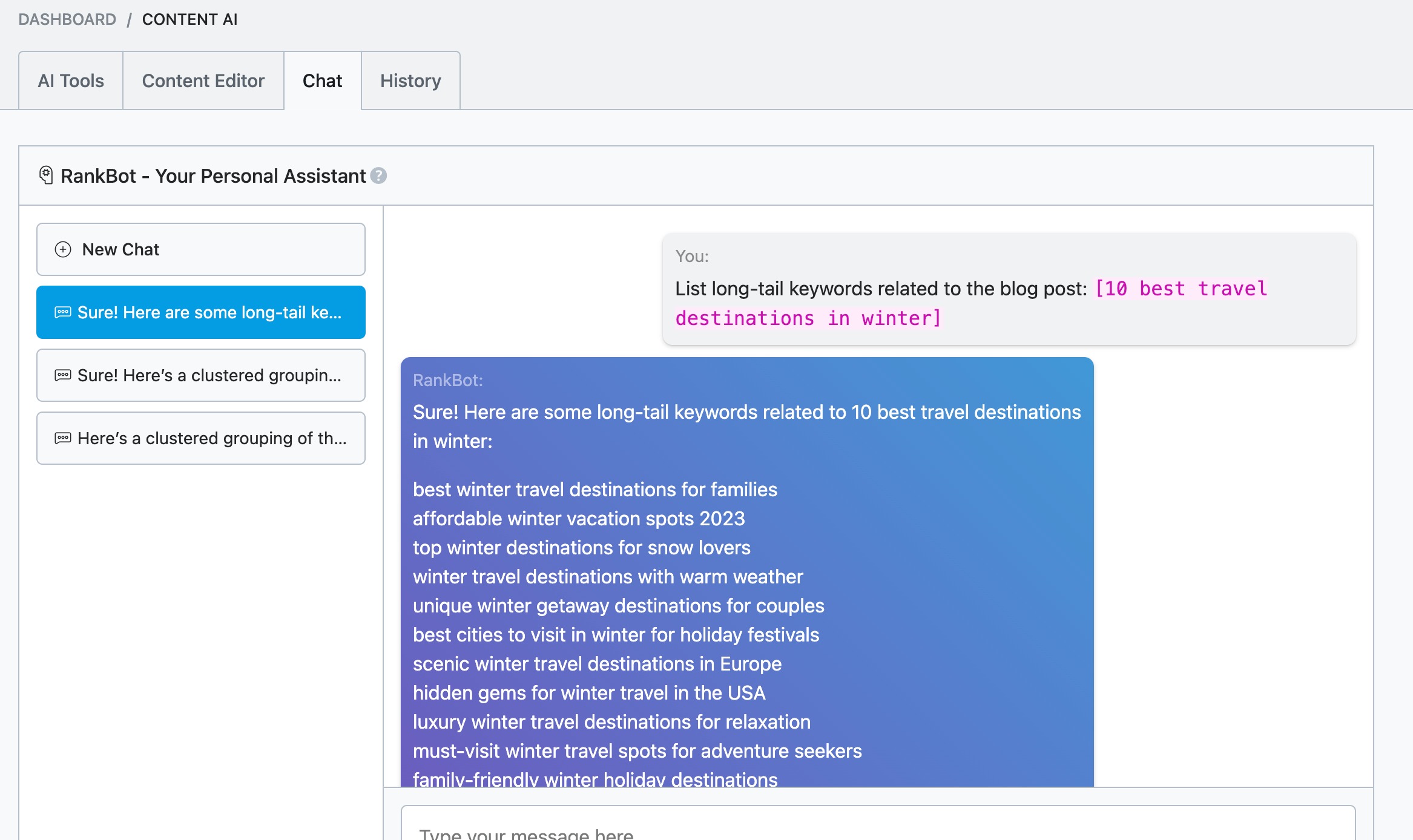
If you’re just starting a new content project and need inspiration, try the Brainstorm Keywords prompt. It’s a great way to get a wide range of keyword ideas in your niche.
With the help of this prompt, RankBot will generate a diverse list of keyword suggestions based on your topic.
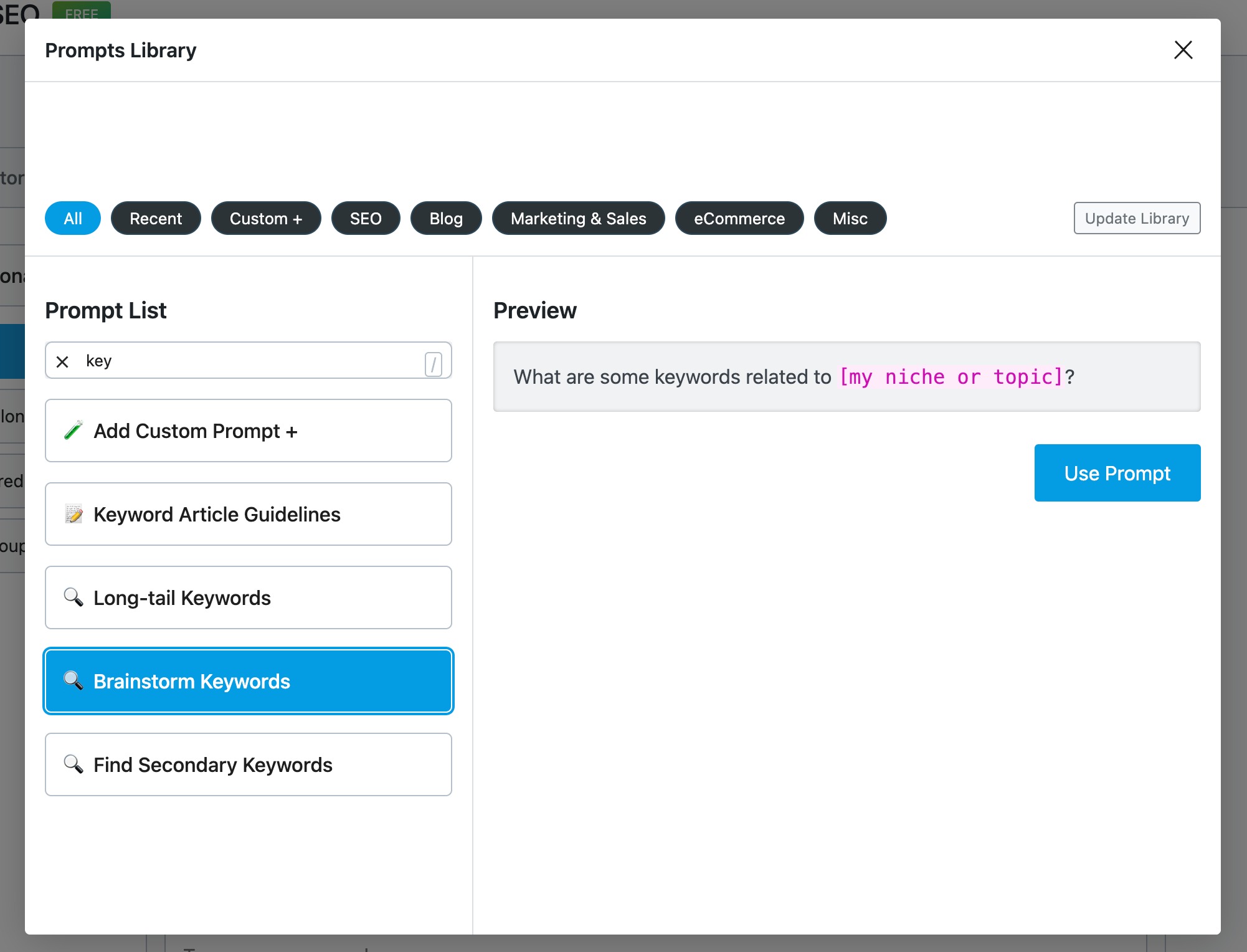
You can also go deeper by finding secondary keywords with the Find Secondary Keywords prompt. These related terms add depth and context to your content while supporting your main keyword.
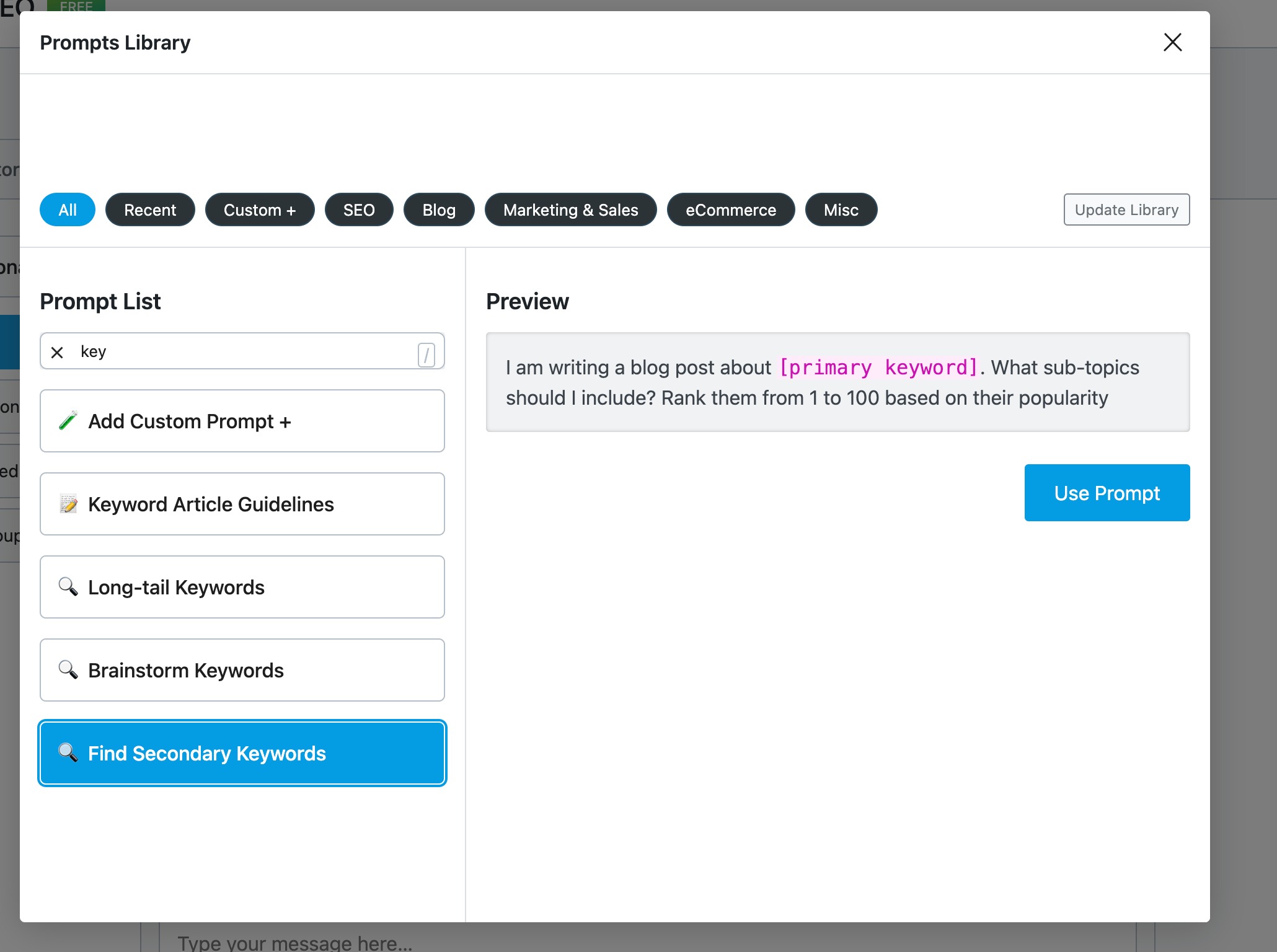
RankBot will analyze the primary keyword and generate a list of closely related terms that can be used to optimize your content further.
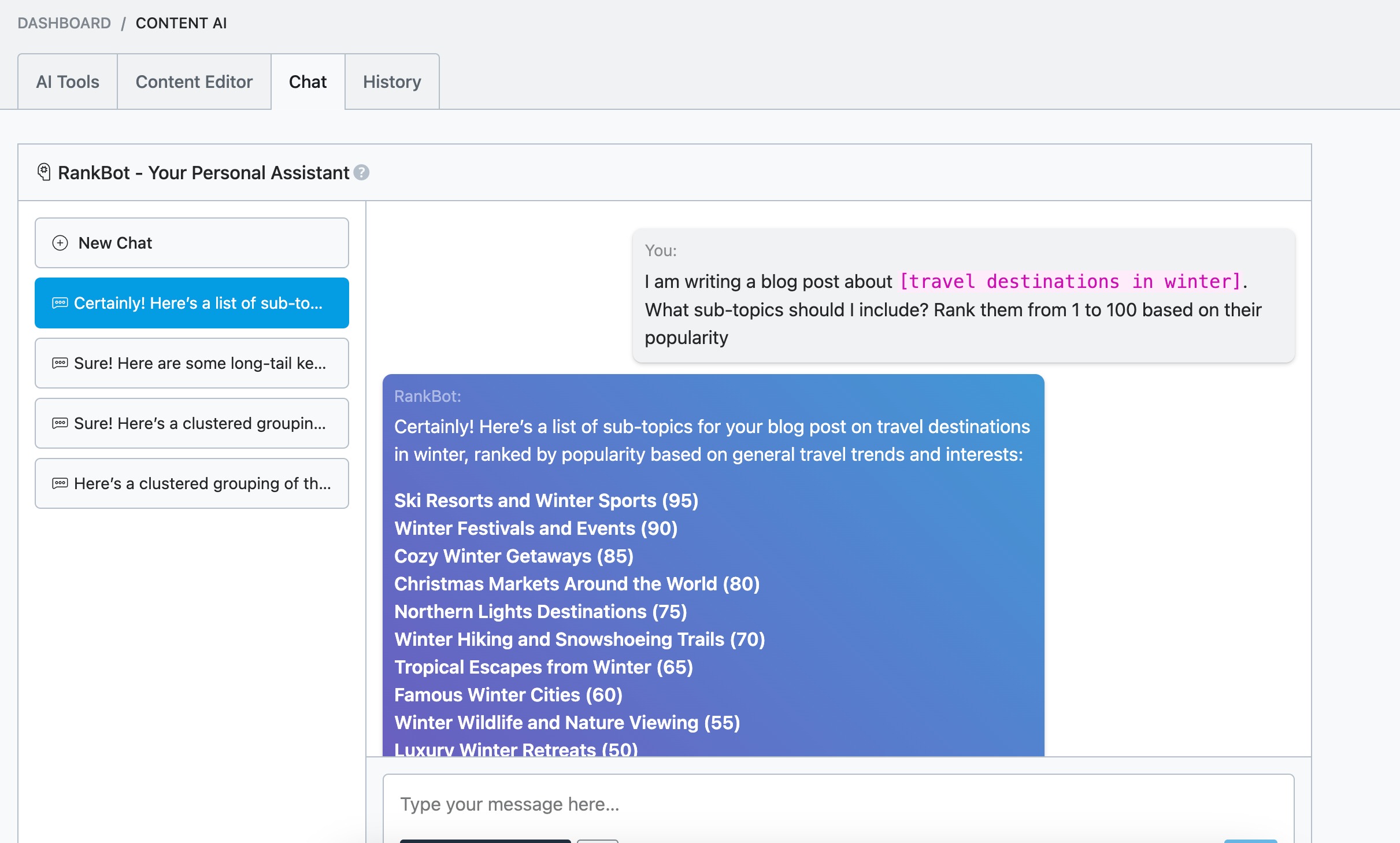
You can also use Rank Math’s Research feature by entering your focus keyword in the Focus Keyword field and clicking the Research button. Rank Math will request our AI server to analyze the keyword, and in a few moments, you will find the related keywords available inside your Content AI panel.
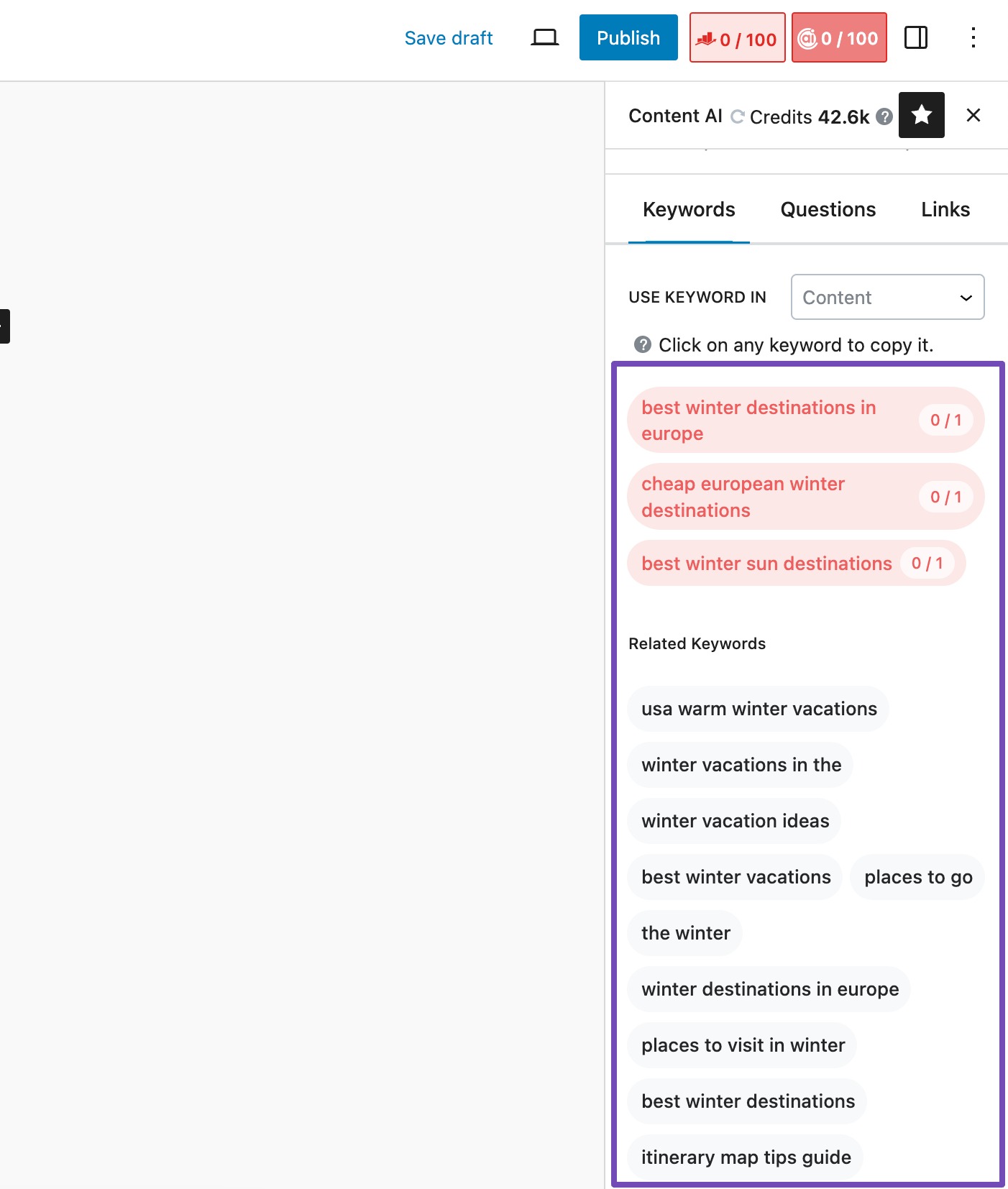
The best part? You don’t have to jump between different tools. With Content AI built into Rank Math, you can research, refine, and optimize the keywords in one place, saving time while making sure your content checks all the right SEO boxes.
2.2 Generate Keyword Clusters
Creating keyword clusters is important for optimizing your content to rank higher on search engines.

RankBot helps you efficiently generate related keywords with similar user intent, ensuring your content is well-structured and relevant to your audience’s needs.
Once you have a list of keyword ideas, access RankBot to generate keyword clusters. You can also access RankBot directly from the WordPress editor, whether you’re using the Block or Classic editor.
In the post or page editing screen, click the Content AI icon. Then, within the Content AI metabox, click the Chat icon to launch RankBot.
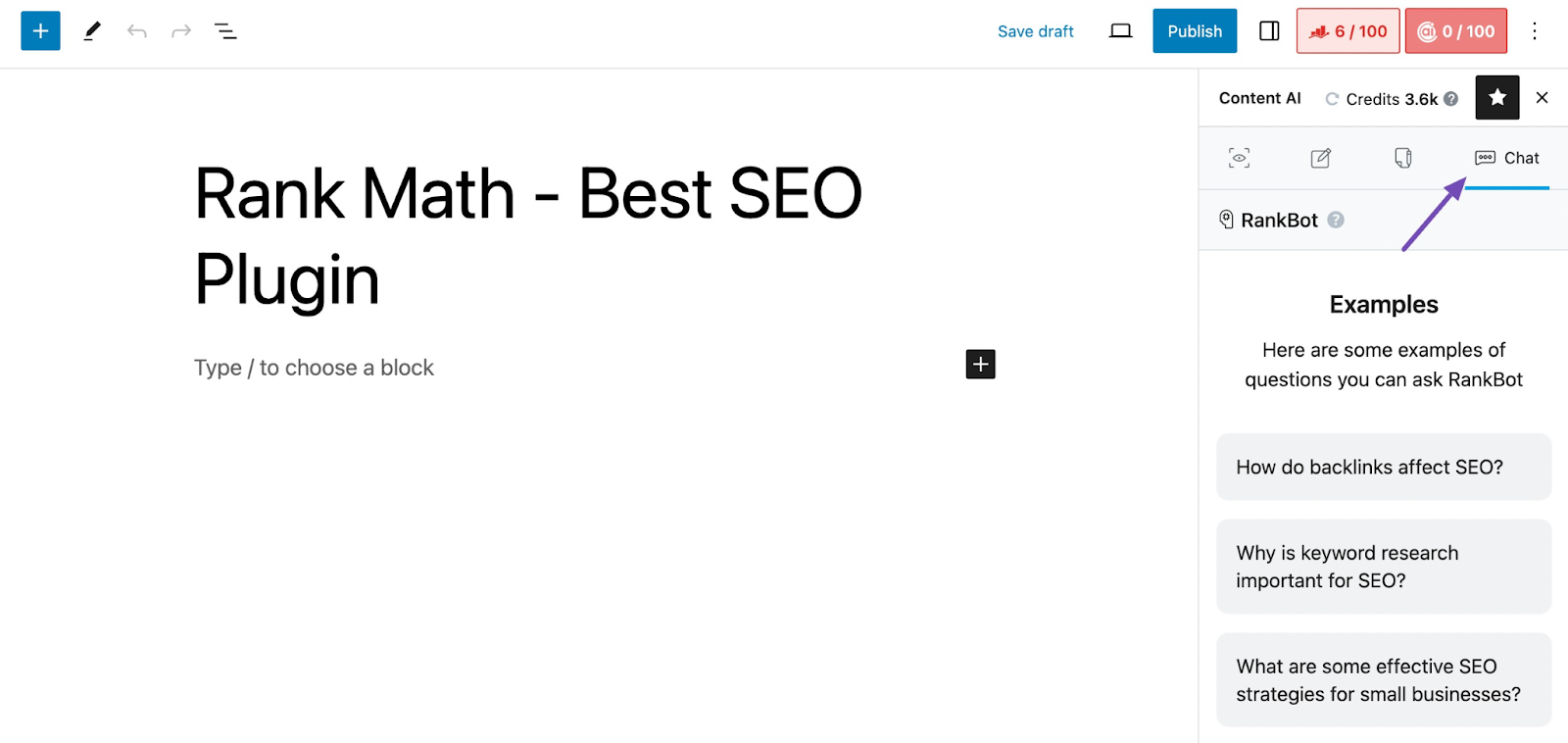
In the RankBot input field, you can type a prompt like this to generate keyword clusters:
Cluster the following list of keywords into groups based on their topic. Each group should contain keywords that are closely related to each other and have the same search intent. Here is the list of keywords: [keywords]
This prompt will help RankBot to organize keywords into groups that reflect different user intents, providing a variety of related keywords to help you rank for diverse search queries.
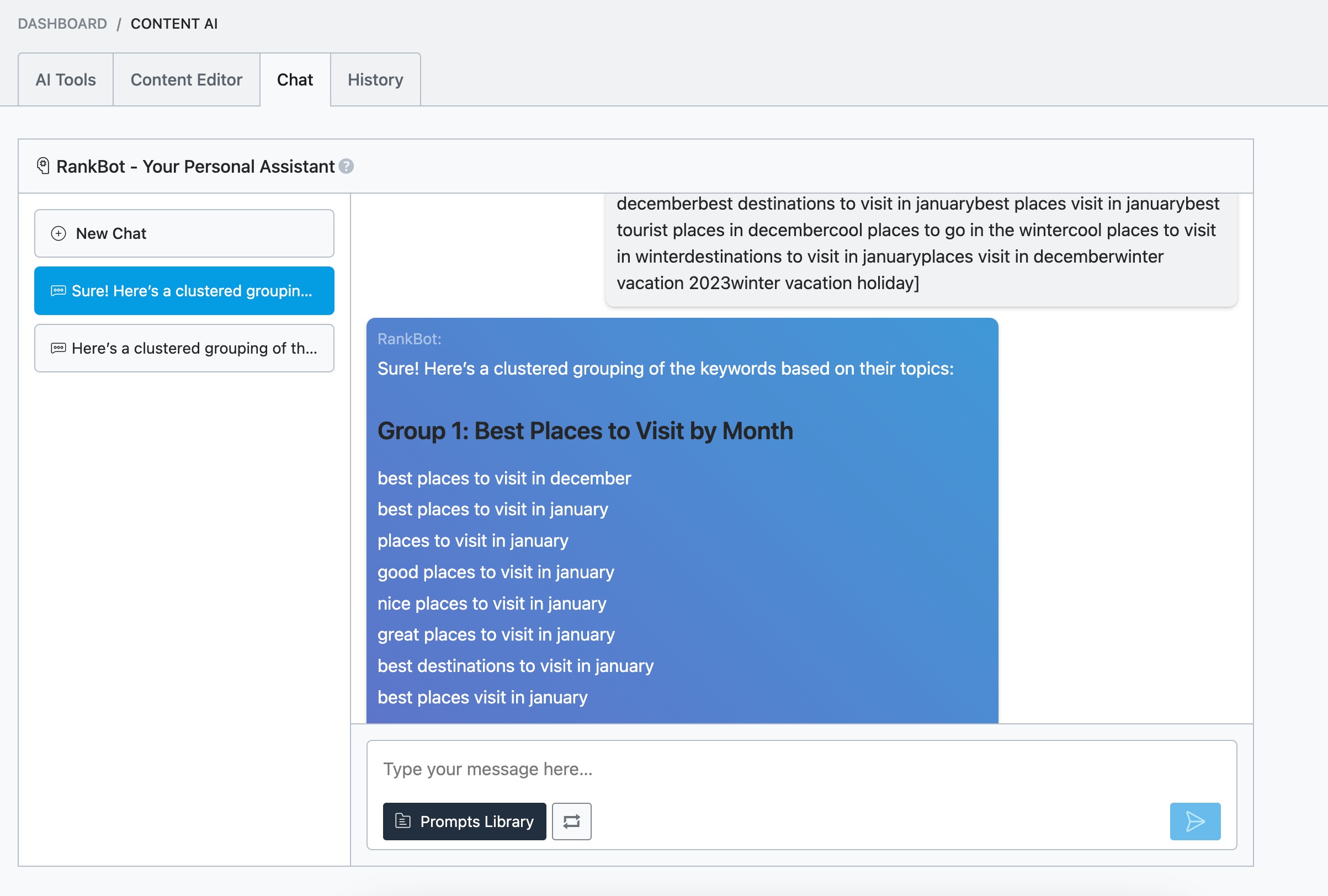
2.3 Perform Competitor Analysis
Semrush helps you study your competitors by showing which keywords they rank for and how your site compares.
Using the Organic Research tool, you can quickly see who your main competitors are in search results.
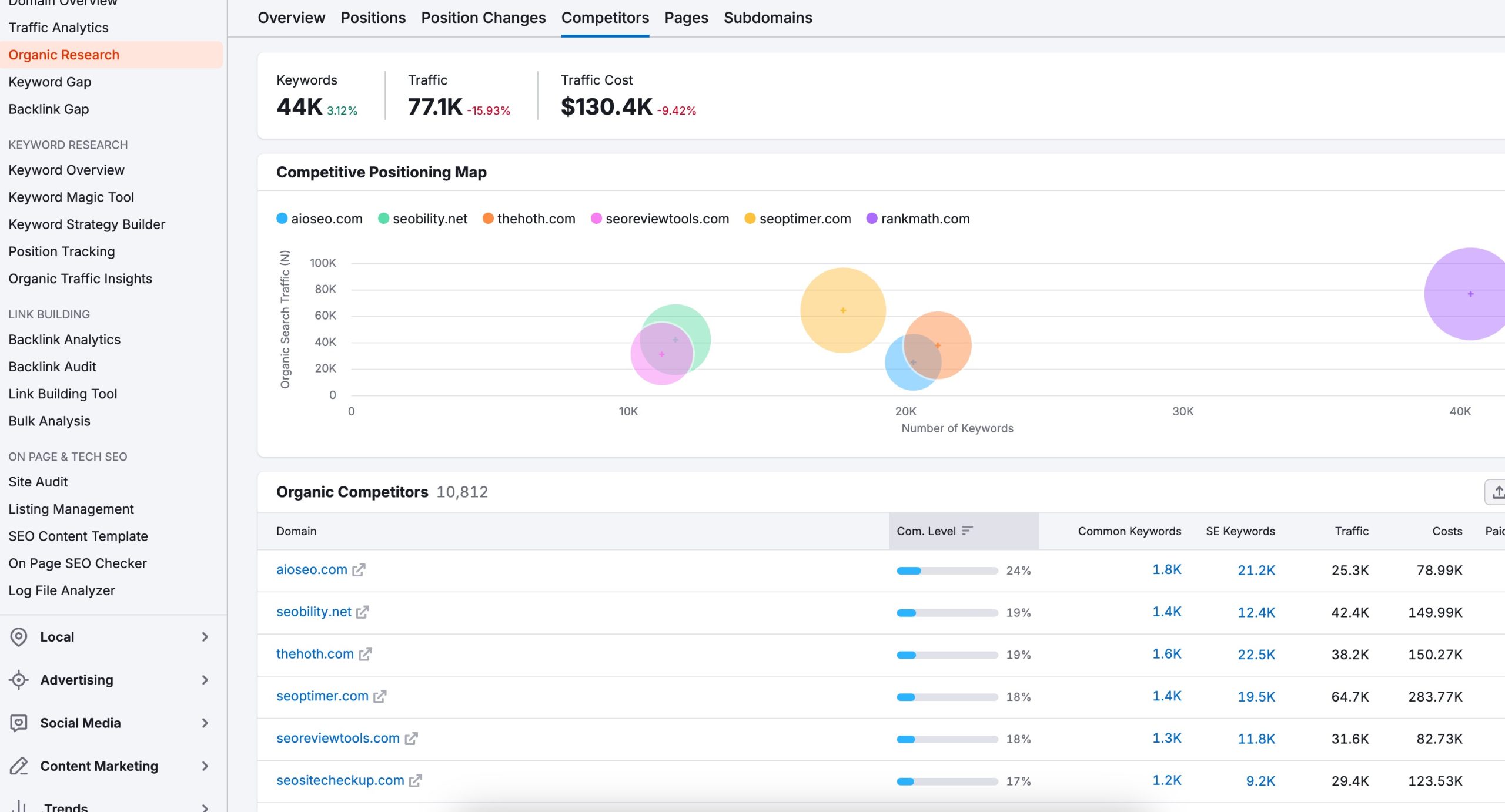
You get a clear picture of where you stand against your competitors and what steps you can take to improve.
3 Common Mistakes to Avoid with AI Keyword Research
When you’re using AI for keyword research, be careful to avoid these common mistakes that can limit your results.
- Don’t rely only on AI without checking yourself – AI can suggest great keywords, but you still need to review them to make sure they fit your audience and context.
- Don’t chase search volume over intent – Just because a keyword gets a lot of searches doesn’t mean it’s right for you. Focus on what your audience is actually trying to find.
- Don’t ignore niche or low-competition opportunities – Sometimes the smaller keywords bring in the most engaged visitors and are easier for you to rank for.
- Don’t stuff your content with AI-generated keywords – If you force too many in, your writing won’t feel natural. Instead, use them where they fit smoothly.
- Don’t forget to update your keyword research – Search behavior changes, so you need to revisit your keywords regularly to stay ahead.
4 Conclusion
AI keyword research takes the guesswork out of finding the right keywords. Instead of spending hours digging through data, you can rely on AI tools to analyze search patterns, understand user intent, and suggest keywords that fit our content strategy.
By using AI, you’re not just saving time; you’re making smarter choices that help your content connect with the right audience.
As you move forward, remember that AI is here to support you, not replace your judgment. Use the insights it gives you, but always think about what your readers need.
When you combine AI-powered research with your own understanding of your audience, you’ll be able to create content that ranks higher, reaches a wider audience, and truly adds value.
If you like this post, let us know by tweeting @rankmathseo.
